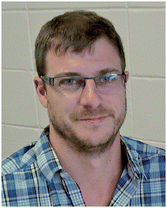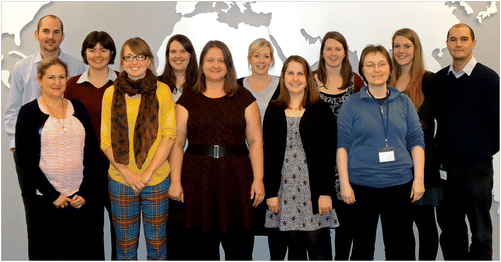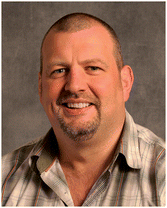Analyst – the home of premier fundamental analytical science
Happy New Year and welcome to Issue 1, 2015 of Analyst. We have seen some excellent submissions to the journal during 2014 and Analyst continues to be in the top 3 general analytical journals publishing primary research, receiving an impact factor of 3.906 and an immediacy index of 0.885 [2013 Journal Citation Reports® (Thomson Reuters)]. The significant growth the journal has undergone during the past four years whilst maintaining its high impact is testament to the high-quality research being carried out by our authors, along with the diligence and hard work of our reviewers and Board Members. Thank you to all who have contributed to Analyst, the home of premier fundamental discoveries, inventions and applications in the analytical and bioanalytical sciences. We appreciate your hard work and dedication to the journal and look forward to building on the successes during 2015 and beyond.We welcome Jean-François Masson, who joins the Editorial Board as Associate Editor for Reviews. Professor of Analytical Chemistry at the University of Montreal, Canada, the Editorial Office of Jean-François looks after submissions of Critical Reviews, Mini Reviews and Tutorial Reviews across the analytical sciences. We are delighted to have the experience and expertise of Jean-François on the team and if you are interested in contributing a review to the journal please don't hesitate to get in touch at E-mail: analyst-rsc@rsc.org.
Analyst has published a number of excellent themed issues throughout 2014, including the following collections: Analytical toxicology of nanoparticles, Guest Edited by Christy Haynes; Analysis in gases and liquids using quantum cascade lasers, Guest Edited by Boris Mizaikoff and Bernhard Lendl; Probe and chip approaches to cell analysis, Guest Edited by Jonathan Cooper and Luke Lee; and the joint collections with our sister journal Analytical Methods: Analytical Sciences in Brazil, Guest Edited by Boris Mizaikoff and Ivo M. Raimundo Jr; and Analytical Sciences in the UK, Guest Edited by Duncan Graham and Craig Banks. You can read all the themed collections, including the ‘Most read articles of 2013’ and soon the ‘Most read articles of 2014’, at http://rsc.li/1EouPQ9.
In 2015 look out for our upcoming themed issues: the Optical Diagnosis issue (which will feature papers from the SPEC 2014 conference – Shedding New Light on Disease, held in Krakow, Poland). As well as themed issues dedicated to in vivo analysis, Guest Edited by Lanqun Mao, sensing using biological and synthetic nanopores and nanopipettes, Guest Edited by Joshua Edel and Sang-Hyun Oh and an issue dedicated to ion-mobility mass spectrometry, Guest Edited by Perdita Barran and Brandon Ruotolo. If you are interested in contributing to any of these themed issues please don't hesitate to get in touch with the Editorial Office.
2015 will also see an exciting new undertaking, as Analyst will take part in its first Twitter conference. Aimed at supporting and engaging with the analytical research community, the idea is to encourage scientific debate and provide additional networking opportunities to scientists using social media. Check the blog for further details http://blogs.rsc.org/an/.
The Editorial staff (Fig. 1) have seen some changes this year too. May Copsey went on maternity leave in the spring of 2014, and will be returning in December. In her absence, Anna Simpson has taken over the role of Editor, and we thank her for her enthusiasm and contributions to the journal. We also have a new Development Editor, as we welcomed Matt Cude to the team at the beginning of 2014.
You may have met some of the Editorial team this year at different events, including Pittcon, the 2014 GRC on bioanalytical sensors, Metabolomics, the Analytical Research Forum, International Mass Spectrometry Conference, 65th Annual Meeting of the International Society of Electrochemistry, JASIS 2014 and SCIX 2014. We're always happy to talk about Analyst, so if you see us in 2015, do pass on your thoughts on the journal and ideas for future development.
Reaching the right audience is key, and Analyst editors will continue to work together with Analytical Methods to provide authors with the best possible home for their research. We will continue to highlight Hot Articles published in the journal on the Analyst blog with the help of our blog writers from around the world; communicating the most exciting research, news and opinions from the analytical chemistry community.
The Royal Society of Chemistry is also supporting Open Access with authors able to choose between Gold and Green Open Access routes. To support the funder-led evolution to Gold OA, our Gold for Gold initiative rewards all institutions that subscribe to the RSC Gold journal package with voucher codes to make papers available via OA, free of charge. In addition to this, Chemical Science, is set to become the world's first high-quality Open Access chemistry journal. From the first issue in January 2015, our flagship journal will move to Gold Open Access. All content published from that date will be free to every reader. Plus, unlike other Gold Open Access journals, we will waive all Article Processing Charges (APCs) for at least two years, so it will be free for authors too.
Finally, we would like to take this opportunity to thank all our authors, referees and readers for your continued support and to wish you a very happy and prosperous New Year!
| This journal is © The Royal Society of Chemistry 2015 |



